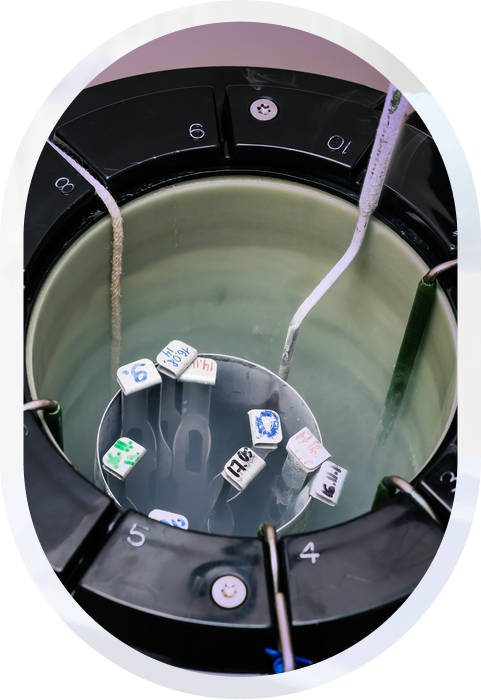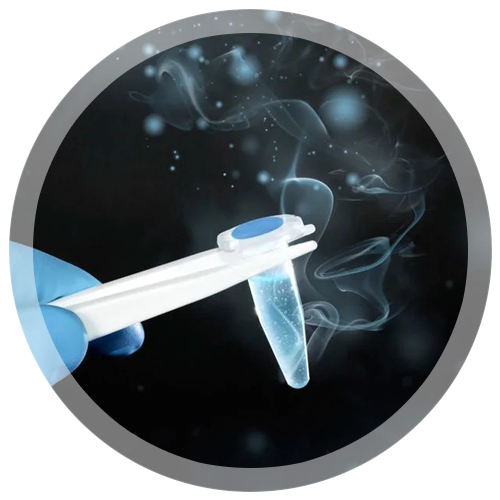Semen Freezing
Sperm freezing, also known as sperm cryopreservation or sperm banking, is a process that involves collecting, freezing, and storing sperm cells. Frozen sperm can be used in the future for assisted reproductive technologies like in vitro fertilization (IVF) or intrauterine insemination (IUI).
Why freeze sperm?
- During IVF treatment semen freezing is done as a back up to use it if needed if male partner is not able to give sample on the day of egg retrieval.
- When there is low sperm count or motility than it is freeze to use that sperm when going for IVF treatment.
- When husband is not available during IVF or IUI treatment than we can use cryopreserved sperm for the treatment.
- Cancer treatment: patient is diagnosed with any cancer and going for Chemotherapy or radiation therapy, which can reduce sperm count or eliminate it.
- Medical procedures: Orchiectomy (removal of the testicles) or vasectomy can affect fertility.
- Medications: Some medications, such as testosterone therapy or sickle cell therapy, can affect fertility.

sunflower success numbers
1500+
IVF and ICSI procedures a year.
22000+
Live births by IVF and ICSI technology.
Life member
AOGS, AICOG, FOGSI, ISAR, ESHRE, ASRM, IFFS, IMA.
Success rate
70% to 76% in IVF ART.
How is sperm frozen?
- A special solution (cryoprotectant) is used to protect the sperm.
- The sperm is placed into cryovials.
- The vials are slowly cooled, then frozen, and stored in liquid nitrogen tanks.
Success rate
- IVF using frozen sperm is just as successful as IVF using fresh sperm.
- Not all sperm survive the freezing and thawing process.
How Long Can Sperm Be Frozen?
With proper cryopreservation and advanced tech-based storage, sperm can remain viable for several decades.




